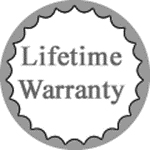Some Shopping Tips (Helpful Ideas)
The following are some tips and information to help you with shopping in NL.
Shopping Baskets, Carts, and Bags
Many stores have shopping carts or baskets to help you carry the items you are buying while you are in the store.
At checkout, many stores, especially grocery stores, encourage you to use your own reusable shopping bags to carry the items out. If you do not have any reusable bags, you may have to pay a small amount for bags from the store. You can buy reusable bags for less than one dollar at most larger grocery stores. Stores, by law, are not permitted to use single-use plastic bags.
Paying for Purchases
In most stores, you pick up the items you want to buy and take them to the cashier to pay. The cashier will add up your bill. It is important that you check that the right amounts are charged for the items you are buying. The amount you have to pay will be displayed on the cash register.
- Be aware of high-pressure sales by sales clerks who work for a commission — they do not get paid until they sell something, or they get extra pay if they sell more. Sometimes they can convince you that you need to buy their product or service when you really do not need it. This is common in car dealerships, stores selling furniture and appliances and some electronics stores, for example.
- Sometimes stores will offer ‘extended warranty’ — you have to pay extra if you want the guarantee from the store that the item will work for a certain period of time. Think carefully if such a warranty is worth paying extra.
Receipts and Returns
You should get a receipt for everything you buy. It is a proof of purchase that shows what, when, where, and how much you paid for an item.
It is important to keep your receipts. If you need to return something you bought (because it is not suitable, it has a defect, etc.), take your receipt with the item and all the packaging back to the store where you bought it. Return policies are different from store to store. They can range from no return policy (all sales final) to one week, or one month. Sometimes a store that usually accepts returns has certain items on sale that can not be returned.
Warranties
Some items you buy have warranties. This means that either the store or the manufacturer (sometimes both) provides a guarantee that if the purchased item breaks in a certain period of time or does not work at all, you can return it and get your money back, or exchange the item for another one.
It is a good idea to check if an item has a warranty before you buy, especially if it is an expensive one.
Comparative Shopping
Prices for the same or similar items may change from store to store. Remember to compare prices.
If you are going to pay a lot of money to buy something, it is a good idea to find out some information about the item you are thinking of buying before you buy it. Ask friends, relatives or neighbours for their opinion about the item you are thinking of buying. You can also research consumer reports or reviews on the Internet to compare prices and product quality.
Sales and Advertising
During sales, stores reduce the prices of some items for a short period of time. These items will usually be marked with a special sticker or price tag. A sales price can mean a percentage off (for example, 20% off the original price), a dollar amount (for example, $10 off the original price), buying multiple items (for example, buy two items and get one for free), or no sales tax.
Sometimes advertising or ads can be misleading. Ask questions about additional fees or parts that must be purchased (for example, the computer might be on sale, but you might have to purchase the power cable separately). Think about what you see on sales signs — the advertisers like to trick you into buying something you don’t need, or into thinking that something is less expensive when it really is not.
Some Typical Advertising Tricks

Big zero, small .99 – This actually means you have to make a 1% cash payment before getting financing for an expensive item, such as a car – the amount could be in the thousands.

Glancing at this price tag makes you think the item costs up to 100 dollars less than it actually does. It looks like a bit over $100 when it is actually almost $200. By the time you pay, with taxes, you will spend way over $200.

Buying something on sale does not necessarily mean that you are saving money if you are buying something you do not need. If you are spending money, you are not saving it! You are just maybe paying a little less than the regular price.

Lifetime Warranty! Whose life – yours, the salesperson’s, or that of the product you are buying?

No interest, no payments for the next 12 months — very common sales trick for more expensive items, such as furniture. If you do not completely pay off the item you have bought within the 12 months, you may be charged very high, accumulated interest for all the time from the moment of purchase, often as high as 34%. You can take advantage of such an offer, but make sure to pay it off on time.
However, advertising is not all bad – the stores use it to inform you about new products, seasonal sales, etc. You just need to be smart and don’t let it lead you into spending money on things you don’t need, or even want.
Flyers
A package of flyers with advertisements will be automatically delivered to many homes in NL every week, and most stores post their flyers online on their websites. In them, you will find information about sales in various stores, as well as reduced price coupons you can use when buying certain items in those stores. It is a good idea to look at the flyers and find information on the products you need to buy. Again, be careful not to spend money on advertised things that you don’t need!
Be aware of getting caught up in the excitement to buy things around the Christmas and commercial holidays, like Valentine’s Day and Mother’s Day. Stores will try to maximize their profits by extra aggressive advertising around holidays and will try to convince you that you absolutely have to buy gifts, cards, decorations, etc.
If you do not want to receive advertisement flyers, put the ‘no flyers’ sign in your window, on your door, or your mailbox, so it can clearly be seen by the delivery person.
Bartering
In Canada when you buy something in a grocery or department store you usually do not bargain or barter the price. However, you sometimes can barter for bigger items such as furniture, appliances, cars, or houses. You can also bargain when you are buying things from private sellers, for example, used items at garage sales, flea markets, or private sales.
Seasonal Shopping
Shopping in Canada changes with the seasons and the holidays. Winter clothing cost much more than summer clothing. It is a good idea to budget for this.
Shopping during seasonal sales can be a good way to spend less money. For example, it is a good idea to shop for school supplies during ‘back-to-school’ sales in August.
- Be aware of high-pressure sales by sales clerks who work for a commission — they do not get paid until they sell something, or they get extra pay if they sell more. Sometimes they can convince you that you need to buy their product or service when you really do not need it. This is common in car dealerships, stores selling furniture and appliances and some electronics stores, for example.
- Sometimes stores will offer ‘extended warranty’ — you have to pay extra if you want the guarantee from the store that the item will work for a certain period of time. Think carefully if such a warranty is worth paying extra.
Be aware of getting caught up in the excitement to buy things around the Christmas and commercial holidays, like Valentine’s Day and Mother’s Day. Stores will try to maximize their profits by extra aggressive advertising around holidays and will try to convince you that you absolutely have to buy gifts, cards, decorations, etc.
Related Resources
Consumer Information
- Better Business Bureau
- Consumers’ Association of Canada
- 10 Tips for Being a Smart and Safe Consumer
- Credit and Debt Management